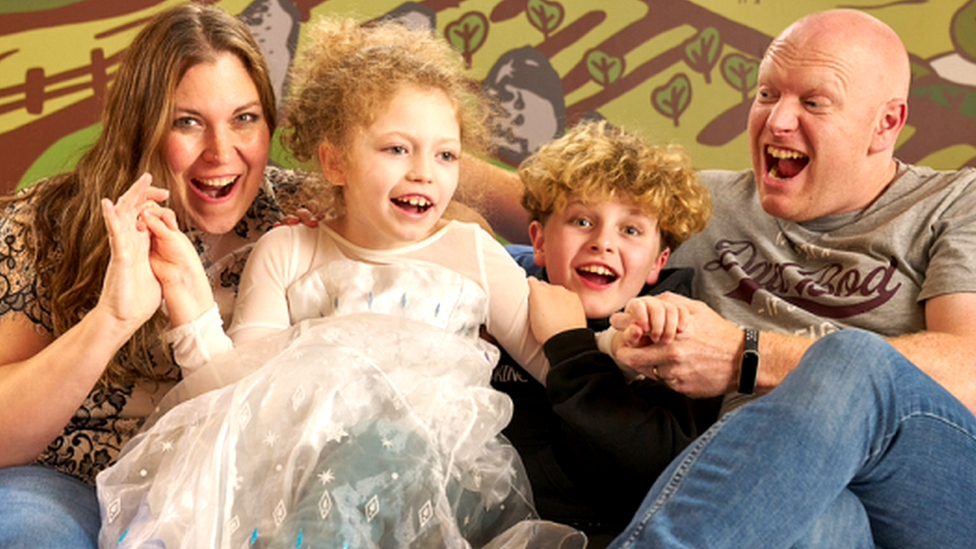Family calls for long-term access to 'miracle' drug
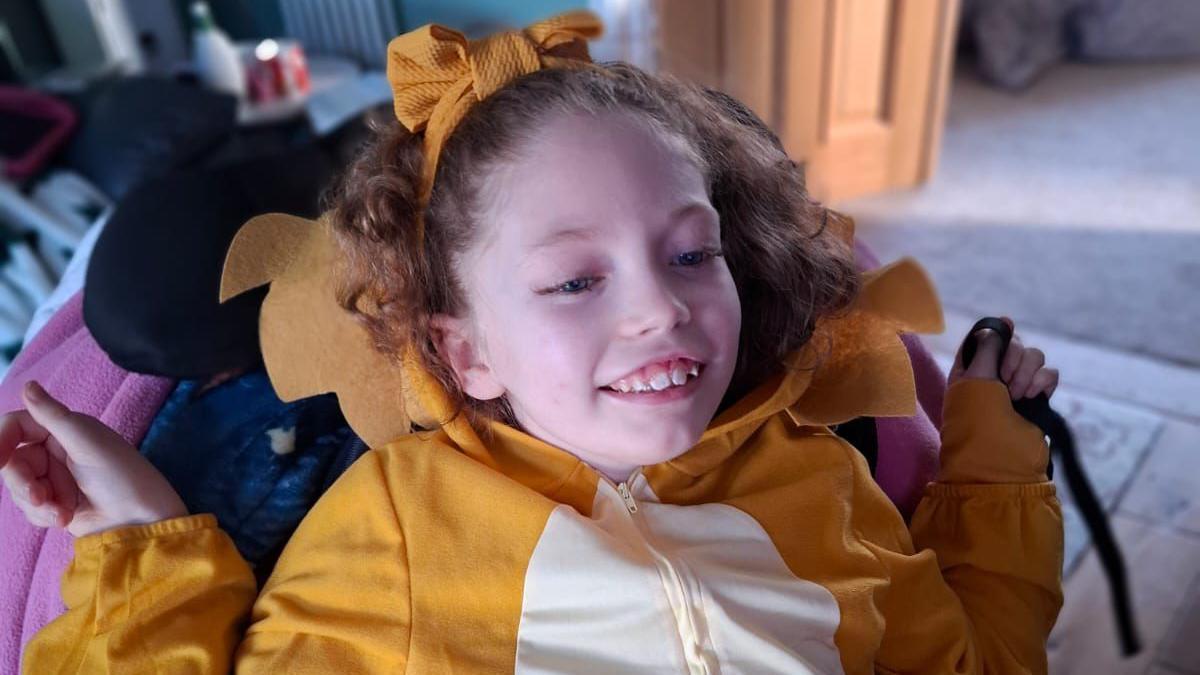
Addy, nine, was diagnosed with an extremely rare condition five years ago
- Published
The father of a nine-year-old girl with a rare disease likened to childhood dementia has called for health bosses to prolong access to a "miraculous" treatment.
Addy Clarke, from Swindon, was four when she was diagnosed with a rare type of Batten Disease, a neurodegenerative disease that affects walking, talking and eating.
She has been treated with the drug Brineura, which her parents say has helped retain skills and extended life expectancy, but there are doubts over its future use.
The National Institute for Health and Care Excellence (NICE) said there is no arrangement to enable access to Brineura "as part of standard NHS care" after 27 May but talks were ongoing with the manufacturer.
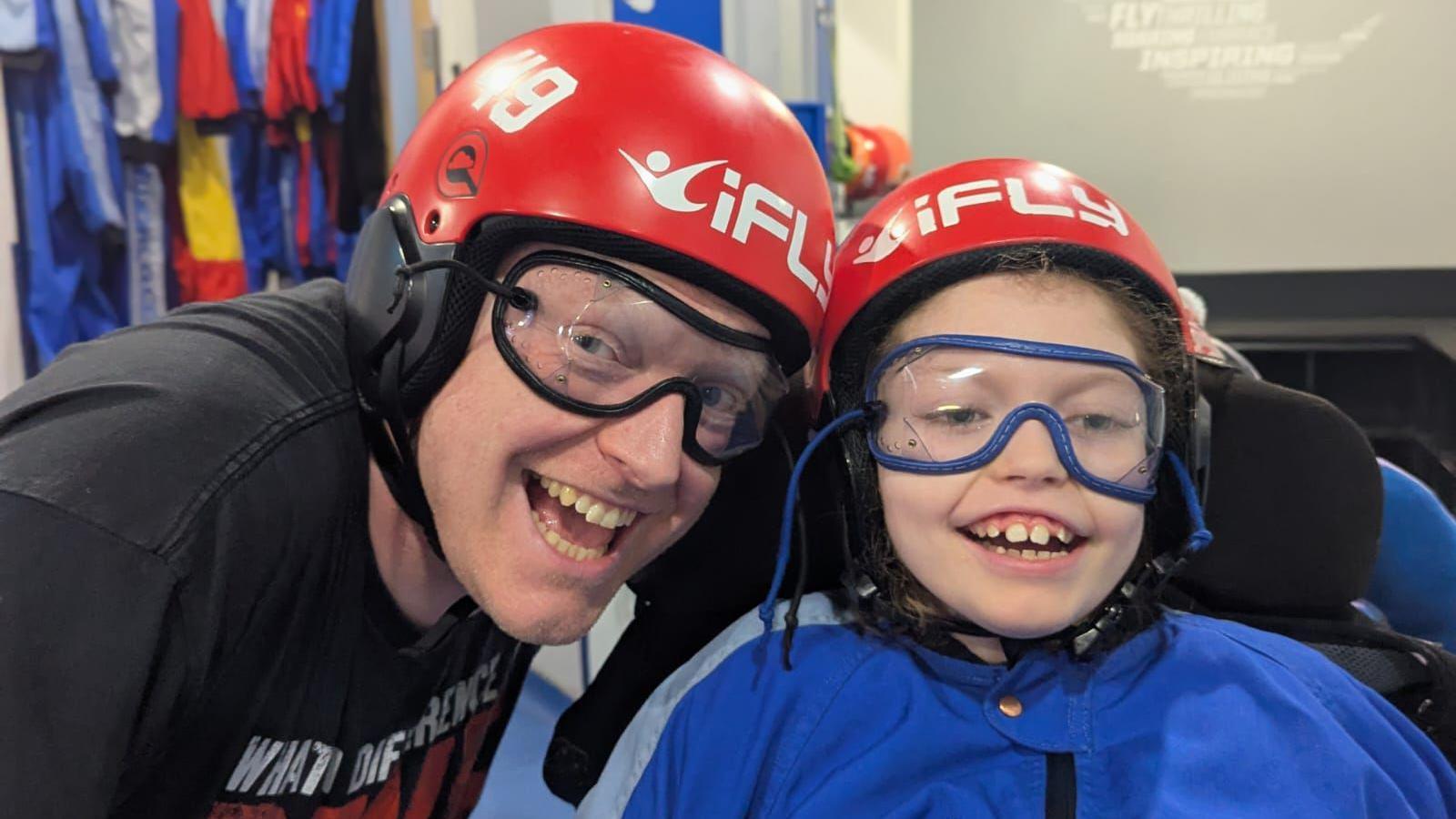
Addy's father Dave Clarke said the drug had been "miraculous" for children with the disease
Addy's father Dave told BBC Radio Wiltshire: "Your child grows up absolutely normal and the first thing you know anything is wrong is your child will typically have a seizure.
"They then start to lose skills that they will have learned like walking, talking, the ability to use the bathroom, feed themselves, until they are diagnosed.
"Children who have been on this drug for five years or so have had remarkable, absolutely miraculous ability to keep skills and prolong their life.
The introduction of Brineura in a clinical trial, he said, had meant that while five years ago there were only 15 children in the UK diagnosed with the type of Batten Disease Addy has, this figure now stood at 40 due to its effectiveness in prolonging life expectancy.
Mr Clarke said: "[The drug] is proven to work, proven to prolong these children's lives, and it is the only treatment out there."
But there is mounting concern that access to it might end as it is currently only administered through a managed access agreement, which is subject to a time limit.

Addy and her brother Samuel were among dozens of families to take part in a Westminster protest on Wednesday
A five-year agreement between NICE and the company that manufactures the drug was made in 2019, with longer term data needed at the end of that period to decide if the treatment could be approved permanently.
That five-year term ended last October, when a six-month extension was approved, which runs out on 27 May.
According to NICE, a fortnightly 300mg dose of Brineura costs £522,722 per patient, each year.
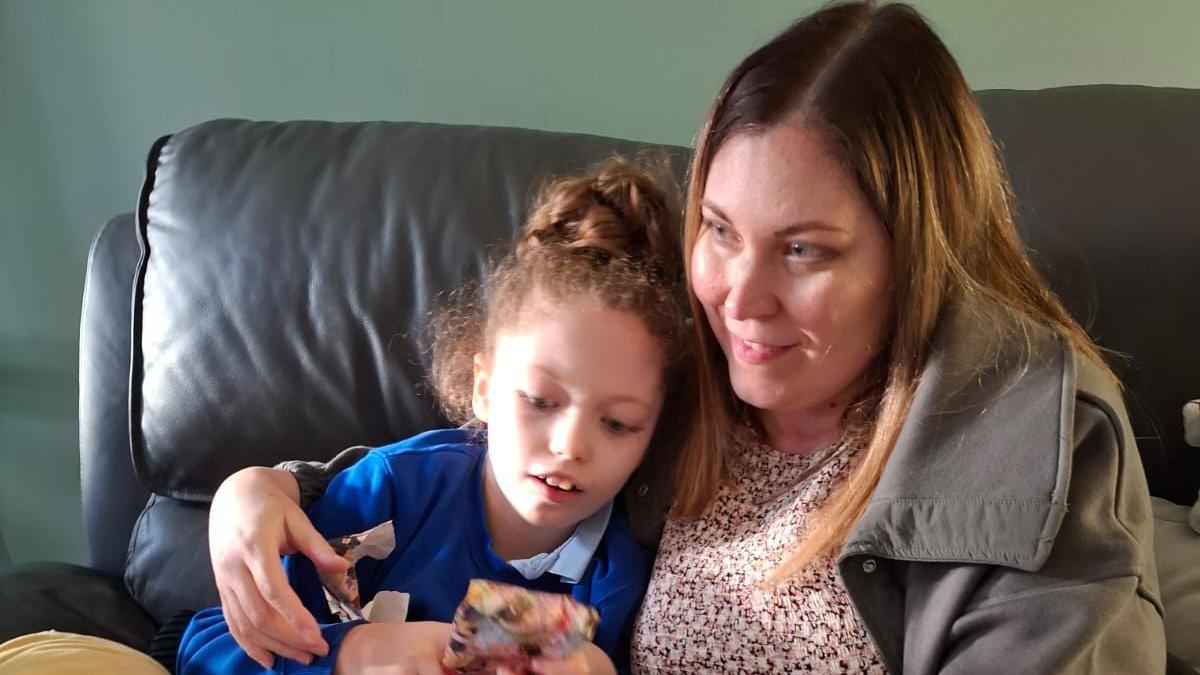
The wait to find out about access to the medication is "prolonging agony" for families, Mr Clarke said
Families like Addy's are now urging NICE to ensure their children retain access to the medication.
Dozens of people protested in Westminster on Wednesday calling for a deal to be made and the wait, Mr Clarke said, was "prolonging agony for families like ours and creating increasing mental turmoil".
"We as families don't know the precise cost value per child per treatment, we know it's expensive, but one thing we do know for sure is just how well these children are doing on it," he added.
Get in touch
Tell us which stories we should cover in Wiltshire
Follow BBC Wiltshire on Facebook, external, X, external and Instagram, external. Send your story ideas to us on email or via WhatsApp on 0800 313 4630.
Related topics
- Published21 February
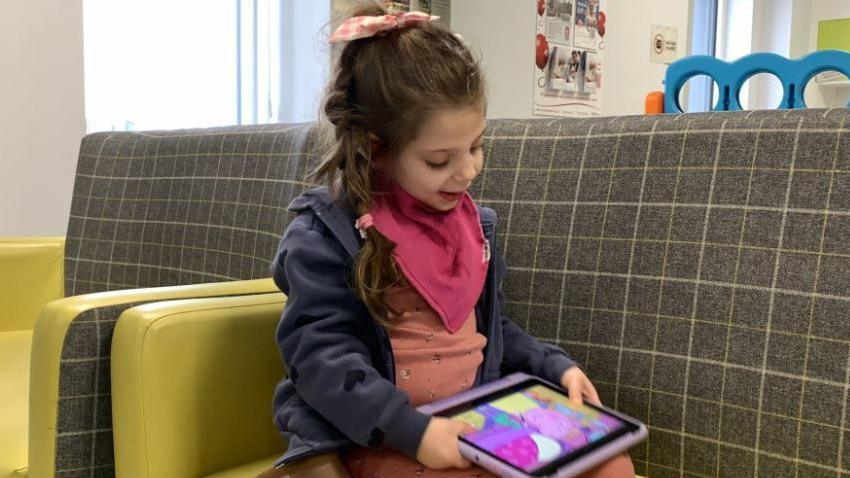
- Published12 March
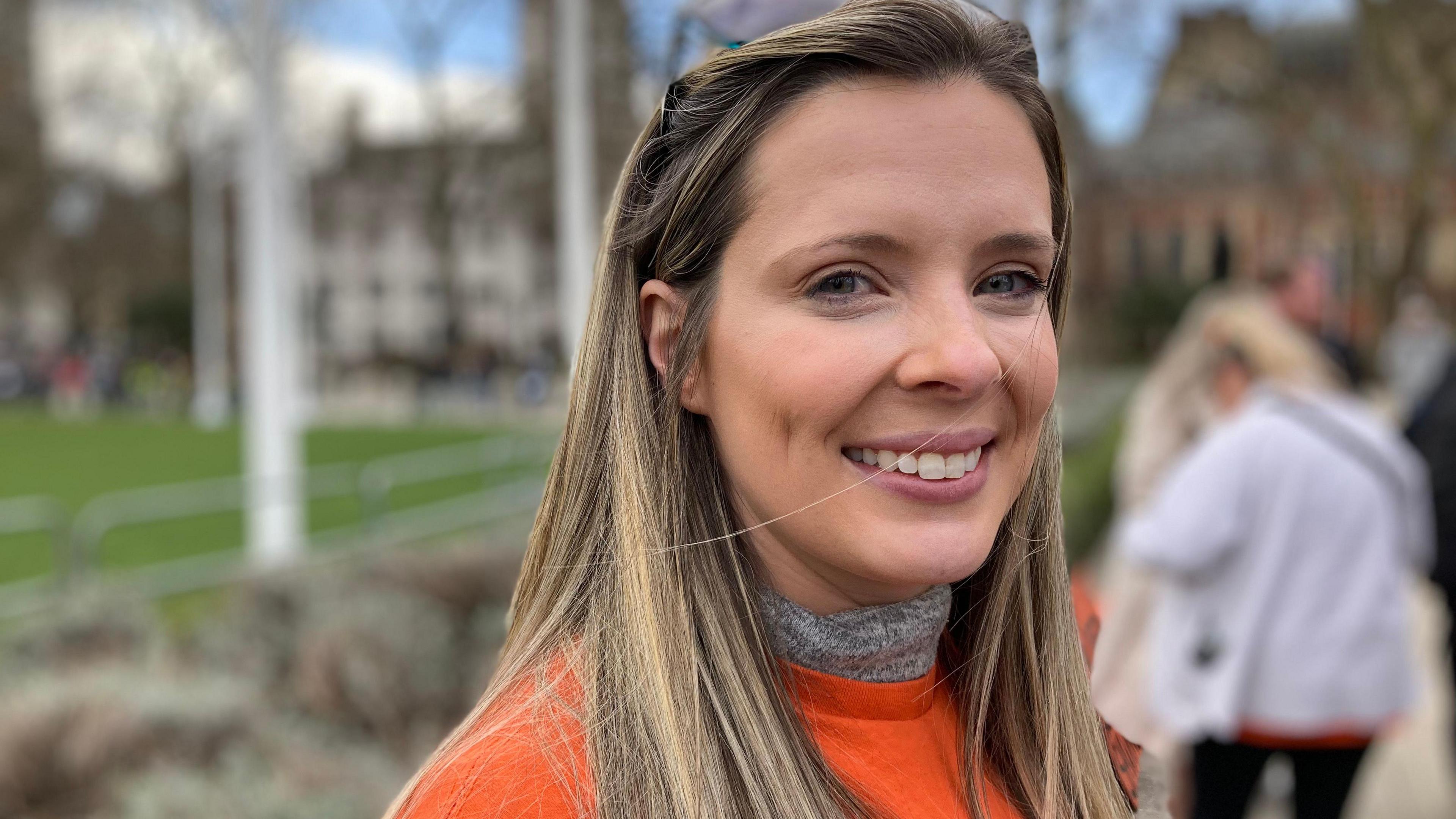
- Published4 December 2023
